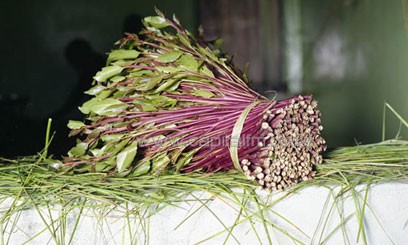
NACADA Chief Executive Officer William Omondi said they had not classified Khat as a narcotic as alleged by Nyambene Miraa Traders and Farmers and could therefore not be held responsible for a drop in Khat sales/FILE
In an affidavit presented to Justice Isaac Lenaola, NACADA Chief Executive Officer William Omondi said they had not classified Khat as a narcotic as alleged by Nyambene Miraa Traders and Farmers and could therefore not be held responsible for a drop in Khat sales.
“Any efforts to regulate its (Khat) production, sale and consumption must involve the key stakeholders including the community, political and civic leaders as well as the government,” the affidavit reads.
“Despite the negative health and educational effects, Miraa has deep rooted cultural and economic importance to the producing and consuming communities.”
Less than a month ago the agency launched a campaign against Khat classifying it as an abused substance and laying on its doorstep responsibility for liver damage, ulcers and a diminished sex drive.
These effects were captured in a report generated by NACADA last year but Omondi now says they, “conducted the research with the sole purpose and intention of having empirical and scientific facts to inform the public and raise awareness on Miraa.”
The Khat traders and farmers have challenged these findings through their lawyer Henry Kurauka and contended that the plant in fact has medicinal value.
“Miraa is medicinal and is chewed because it reduces the risk of getting high blood pressure, diabetes and cancer. It also boosts the brain’s performance.”
Nine legislators from Meru also sought be enjoined in the suit and weigh in on the debate but their bid was rejected by Justice Lenaola after the Nyambene Miraa Traders and Farmers argued that their concerns would be better addressed in Parliament. Led by Japeth Muroko the traders said the MPs had failed to press the government when the classification was made.
Debate on the effects of Miraa, more specifically its effects on sexual prowess, raged in Parliament on July 10 following the announcement of a planned ban on khat exports to the United Kingdom.
It remains to be seen however whether or not the ban will be extended to Kenya’s borders. In the mean time however, Justice Lenaola has allowed the Nyambene Miraa Traders and Farmers until August 19 to amend their petition in light of Omondi’s sworn statement.









































